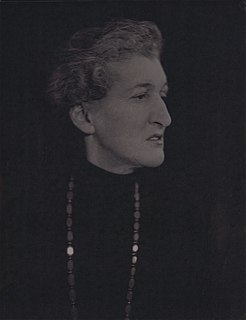A Quote by Gilbert K. Chesterton
The Bible tells us to love our neighbors, and also to love our enemies; probably because they are generally the same people.
Related Quotes
I know people who are both extremely wealthy, people who are middle class and people with little material wealth. Whatever their circumstance may be, they are every bit as renounced as monks because they have that spirit. The spirit of charity on a spiritual platform. The Bhagavad Gita explains that real wisdom is when we see every living being with equal vision. When we love God, we naturally love our neighbor as our self, as the Bible also tells us.
In the Christian sense, love is not primarily an emotion but an act of the will. When Jesus tells us to love our neighbors, he is not telling us to love them in the sense of responding to them with a cozy emotional feeling. You can as well produce a cozy emotional feeling as you can a cough or sneeze. On the contrary, he is telling us to love our neighbors in the sense of being willing to work for their well-being even if it means sacrificing our well-being to that end.
The Savior’s words are simple, yet their meaning is profound and deeply significant. We are to love God and to love and care for our neighbors as ourselves. Imagine what good we can do in the world if we all join together, united as followers of Christ, anxiously and busily responding to the needs of others and serving those around us — our families, our friends, our neighbors, our fellow citizens.
If religion commands universal charity, to love our neighbors as ourselves, to forgive and pray for all our enemies without any reserve; it is because all degrees of love are degrees of happiness, that strengthen and support the Divine life of the soul, and are as necessary to its health and happiness, as proper food is necessary to the health and happiness of the body.




































